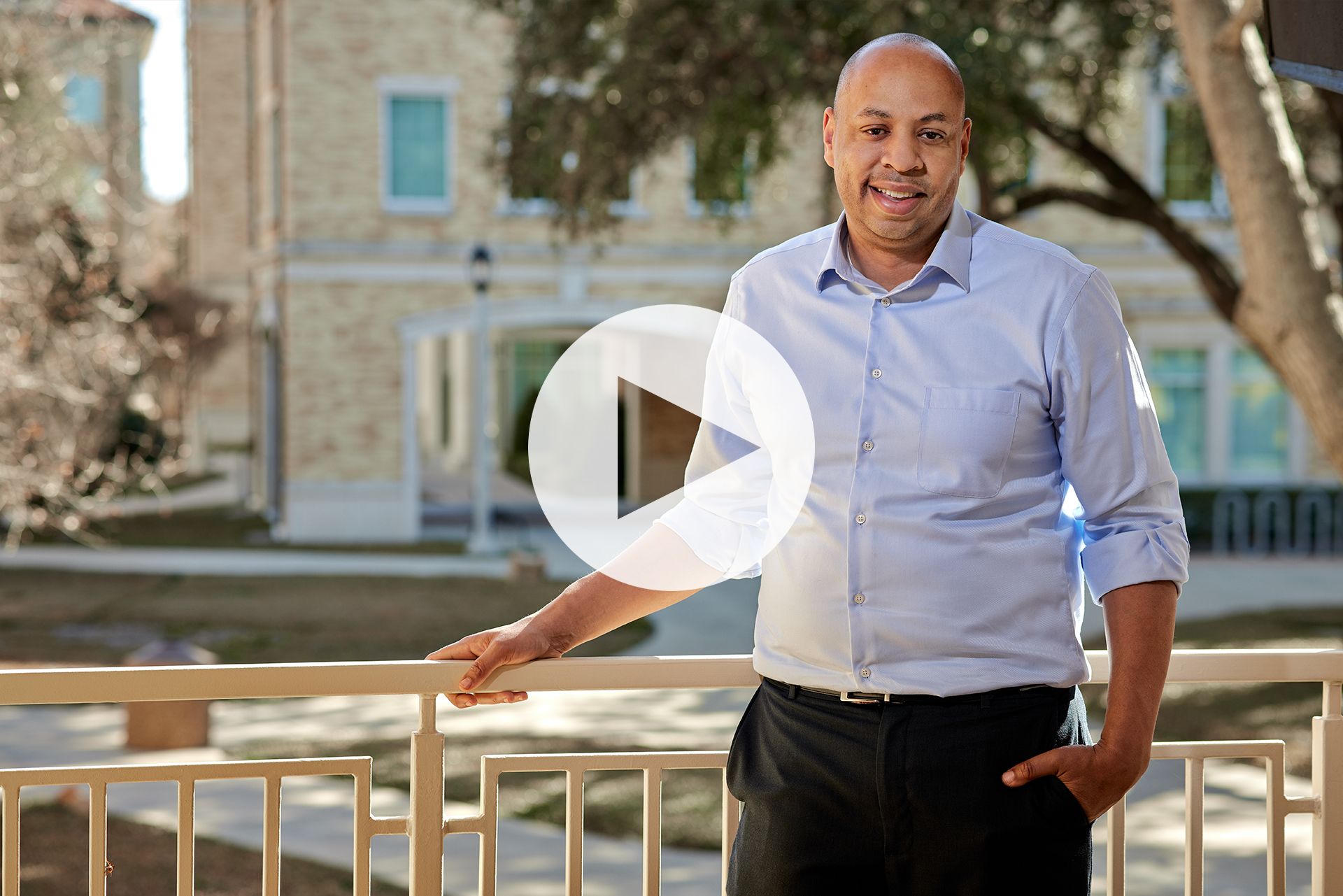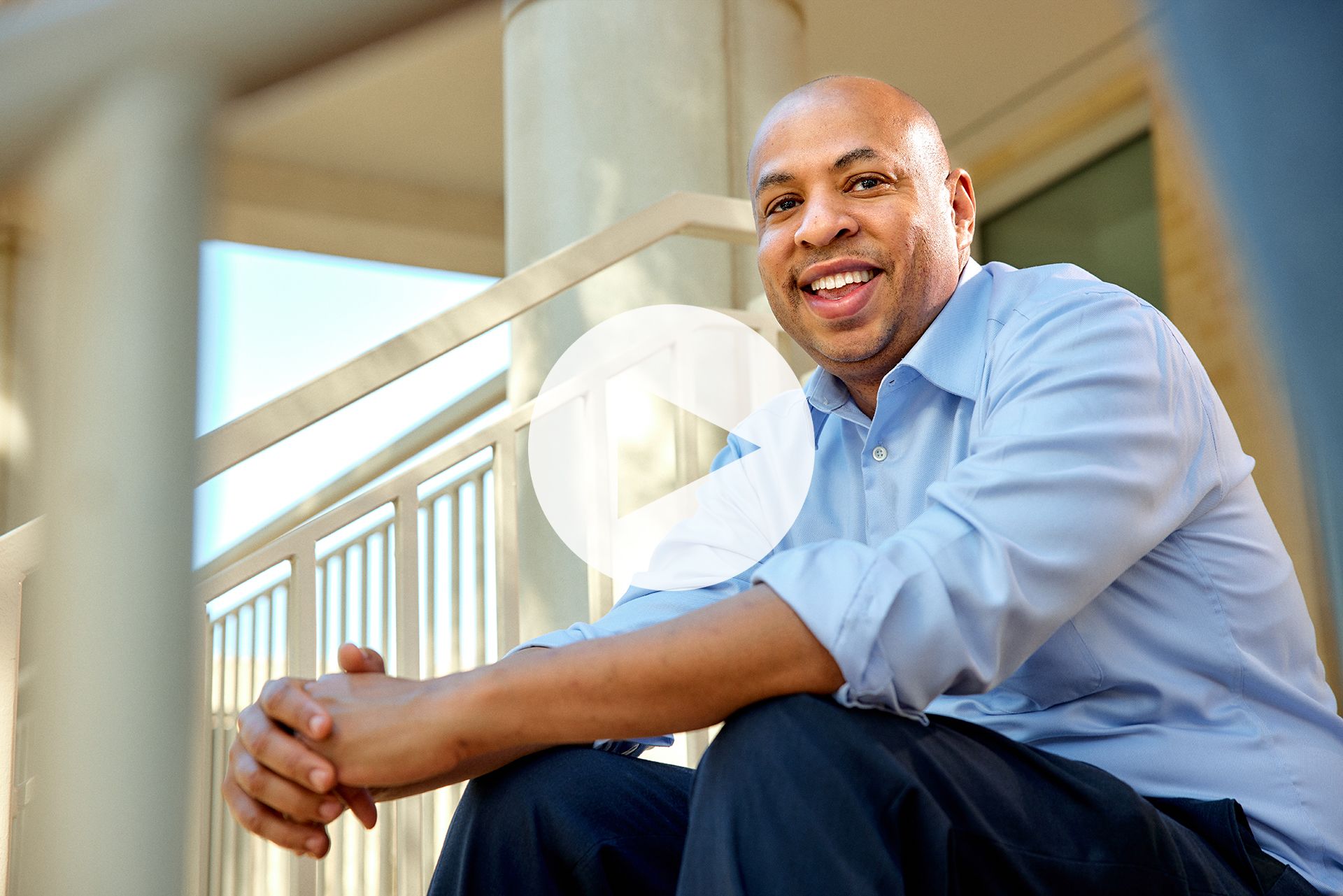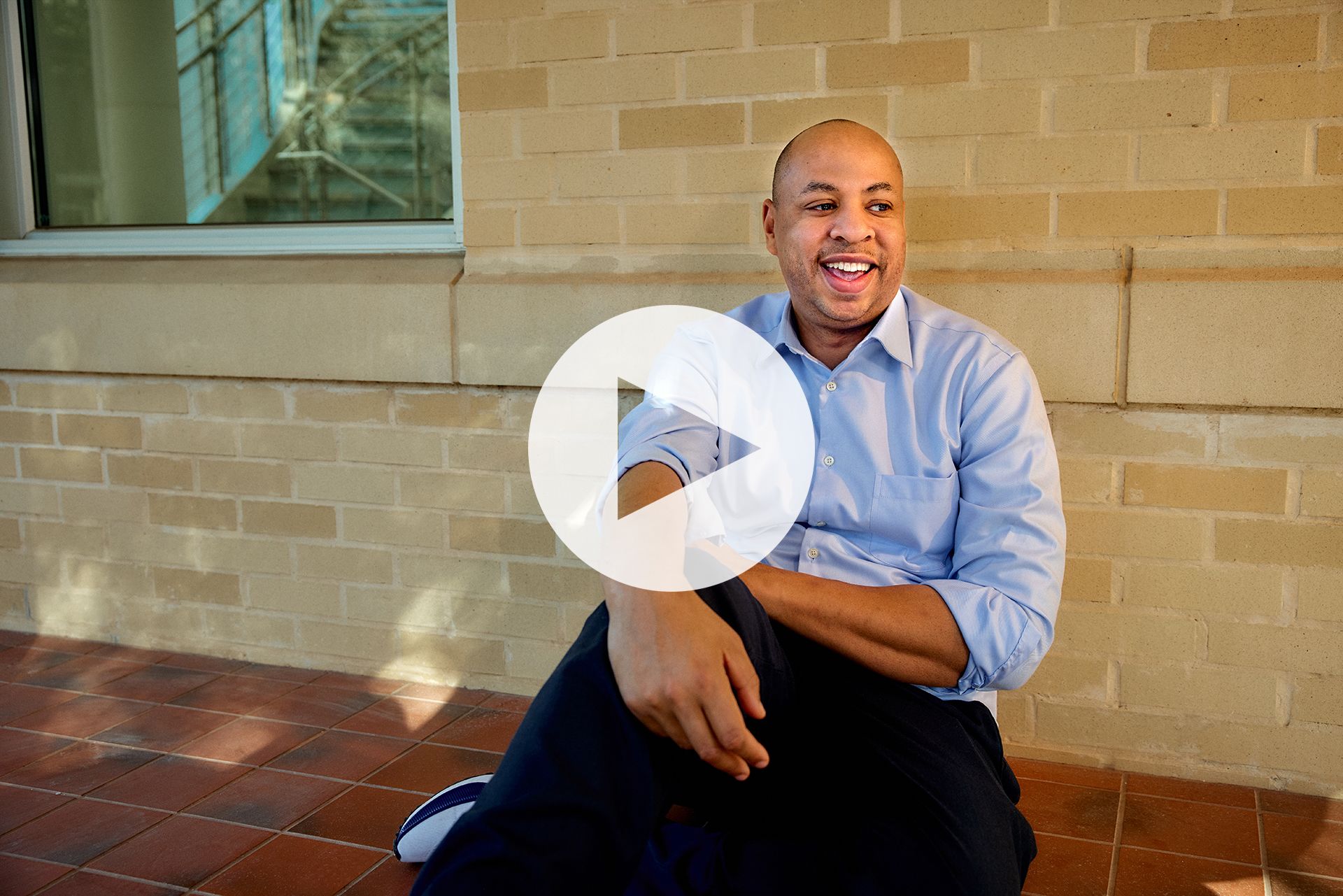Rethink Everything
How One University is Changing Mental Health Support

Since the start of the pandemic, Texas Christian University (TCU) in Fort Worth, Texas, has seen a 48 percent increase in demand for mental health services. Many institutions saw such surges, but the TCU therapists not only kept up — they saw an average of seven more students per week than in 2019.
Eric Wood, Ph.D., LPC, the Director of Counseling & Mental Health at TCU, is proud of this accomplishment, but he’s not one to brag. In fact, he asserts that any institution can improve its effectiveness in addressing the growing nationwide campus mental health crisis by learning from TCU’s Comprehensive Collaborative Care Model (CCCM). More than 70 schools have already participated in online presentations about aspects of the model and its benefits.
“Can we change the field of college mental health?” Wood asks. “I know it sounds like a lofty goal, but the traditional model of just hiring more therapists is not feasible, and often not even effective. I’m not saying we have all the answers, but we have an alternative to the traditional model that’s yielded impressive results.”
TCU’s path to the CCCM began with focusing on three trends seen not just there, but on campuses across the U.S.:
- Twenty percent of students seeking mental health treatment utilize about half of all campus counseling center appointments.
- The majority of college counseling center clients have previously received services.
- Responding to students in crisis contributes to burnout among already overburdened counselors.
“Even if you hire an army of therapists but the scope of care is just short-term counseling, what are you going to do about those 20 percent who are high-need?” Wood asks. The answer lies in collaboration with community partners, peer support communities and a dedicated crisis and triage team.
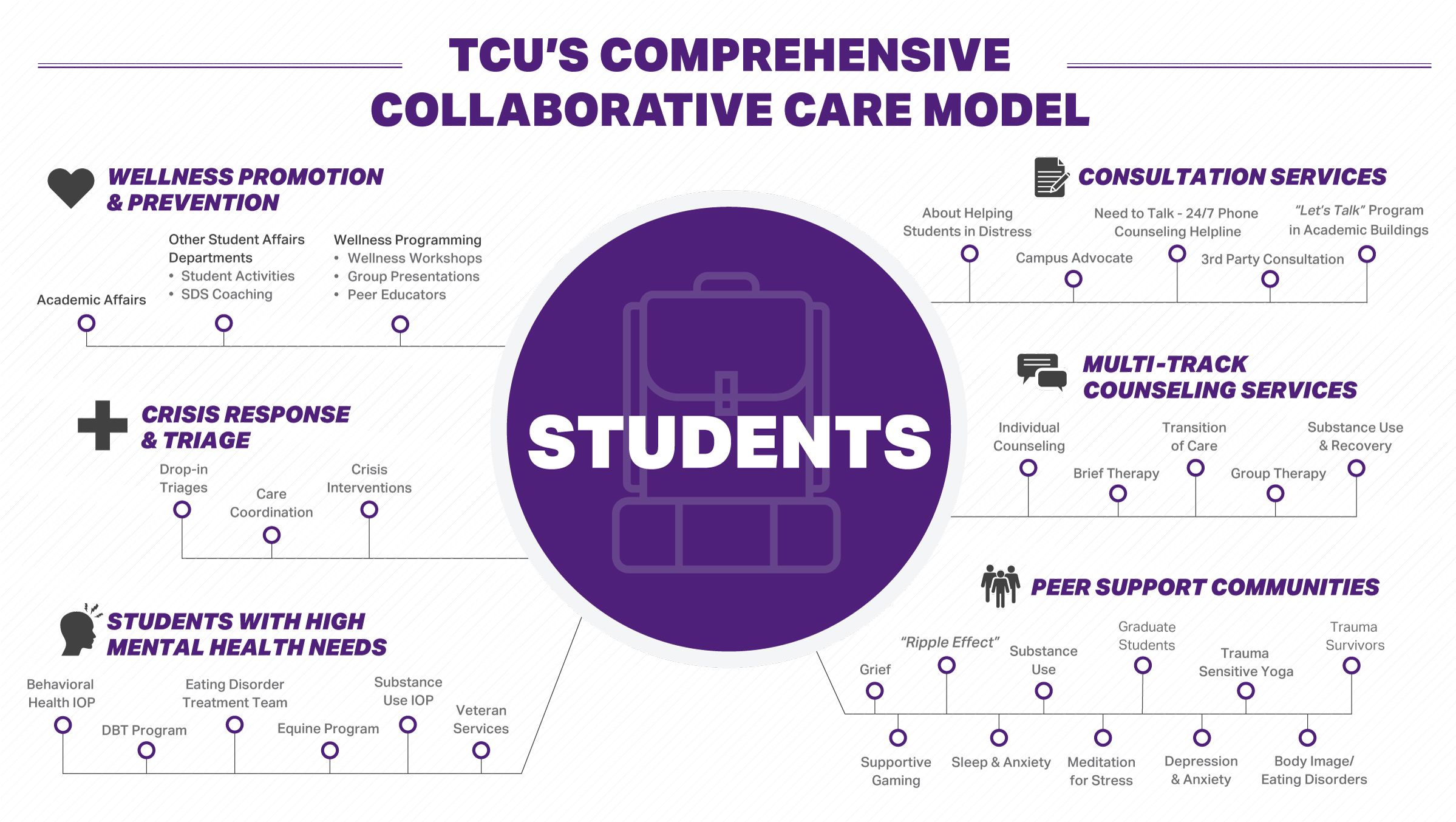
On-campus and off-campus partnerships
Student health centers don’t perform major surgery. Similarly, Wood contends, no student counseling center should be expected to treat all mental health disorders. But it shouldn’t just refer them elsewhere either.
For the high-need students, TCU partners with off-campus facilities to provide on-campus services, like dialectical behavioral therapy (DBT). “The fact that we offer these services on campus removes a lot of barriers,” Wood explains.
“Even though the treatment center is 10 minutes down the road and it’s the exact same program, to have it on campus and just for students, it opens doors to make students a lot more willing to do it. We saw 24 students for DBT, and 22 are still enrolled. In the past, they probably all would have dropped out.”
Those students and many others are also offered peer support communities, which are modeled on recovery groups. “No one expects a client with one month of sobriety to avoid relapse if all therapeutic interventions are stopped,” Wood notes. “We should have the same mentality with other concerns like depression and anxiety.”
The peer support communities really took off when Wood, true to his word about collaborating, agreed to a colleague’s suggestion to launch a group based on Dungeons & Dragons, the tabletop fantasy role-playing game. “I didn’t know much about D&D, just the stereotypes,” he recalls. “But I was excited because traditionally, it’s been really hard to get students who are gamers to come into counseling. So, I thought, let’s see if students will be interested.”
They were. The first D&D-based peer support community filled up in one day. There are now four, each with eight students meeting regularly to play, with a staff member serving as Dungeon Master (a guide and referee for the players, who work together on adventures). One student told Wood that while he loved the games themselves, he truly valued knowing that if he texted at 2 in the morning that he needed someone to talk to, everyone in the group would respond.
TCU now offers a wide range of peer support communities, for grief, eating and body image issues, depression and anxiety, and recovery, to name just a few. Many were suggested by students, and they are largely student-led. “What we’ve found,” Woods explains, “is that many students elect to join a peer support community instead of counseling. Even more surprisingly, many students report that these support communities meet their needs. That was a huge finding.”
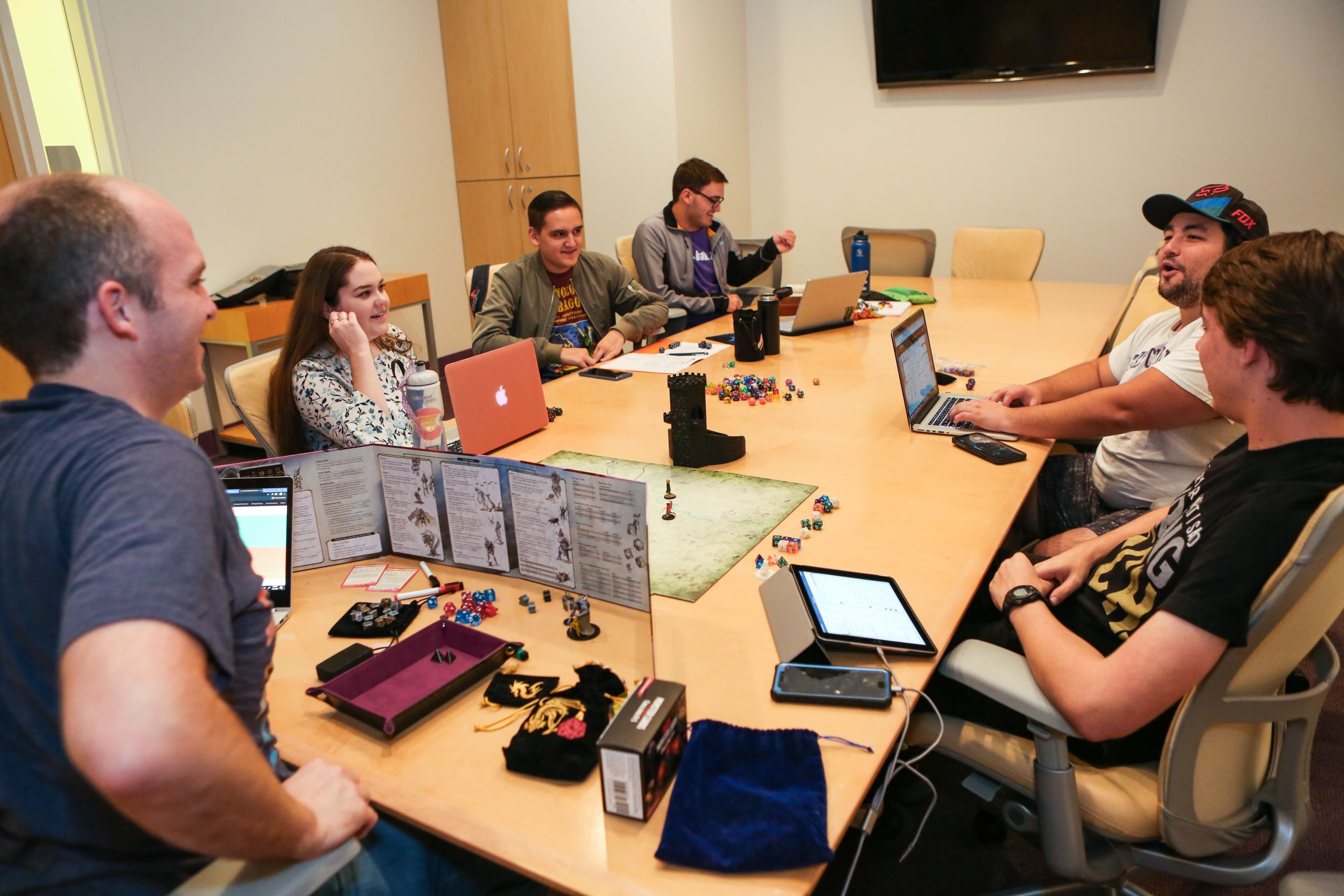
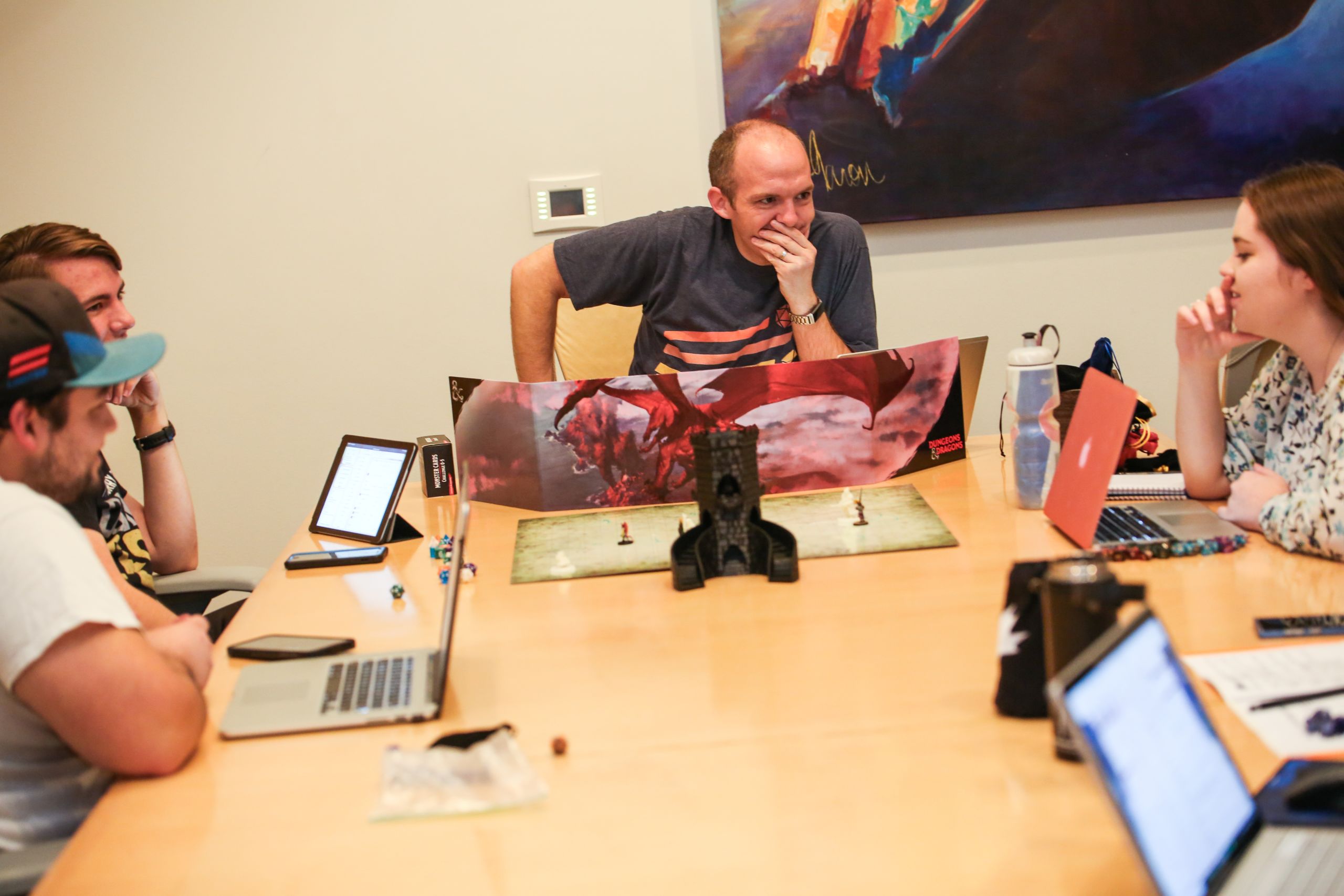




About a dozen members of the Dungeons & Dragons supportive community meet weekly to play the tabletop board game. Supportive gaming is just one of more than a dozen peer communities offered by TCU.
About a dozen members of the Dungeons & Dragons supportive community meet weekly to play the tabletop board game. Supportive gaming is just one of more than a dozen peer communities offered by TCU.
A campus-wide effort
The collaboration has continued. The university’s equestrian coach suggested equine therapy, and Wood’s staff found a program on a ranch not far away. Students from various peer support communities launched Letters of Care, an online program that allows students who are struggling to share their stories, anonymously, and receive a supportive, personal response from another student.
While very different from each other, these programs are examples of Wood’s conviction that varied, dedicated systems of care are better for students — and for staff. The traditional mental health center model asks therapists to juggle appointments and drop-ins, among other duties, contributing to burnout, a growing problem in higher education. TCU secured a grant from the Department of Health & Human Services to fund a crisis and triage team, staffed by therapists with no scheduled caseload.
“They can see a student immediately, and, if necessary, the day after that, and the day after that,” Wood says. “So, it’s better for those students because they’re getting the frequent, personalized attention they need. And the other therapists can keep their appointments and focus on their clients who aren’t in crisis.”
TCU is one year into the Comprehensive Collaborative Care Model, and, so far, the results are overwhelmingly positive. While still gathering data, Wood is encouraged by the enthusiasm for the new programs and the anecdotal evidence, like the student who wrote suicide notes but then still showed up for a peer support community meeting that night and got help.
“I’m looking forward to getting more data,” says Wood. “Our model hasn’t cost the institution any additional money, it’s expanded our scope of care, increased staff efficiency, and been well received by our campus.
“As colleges and universities resume in-person classes, campus counseling centers will face the psychological fallout of the pandemic. The old way of doing things wasn’t working before, and it certainly won’t work now.”
Based on the success of last year’s webinar about TCU’s peer support communities, Wood and his team are considering offering another one this year. If you’re interested in attending or learning more about the program, email Eric Wood at e.c.wood@tcu.edu.
This content was paid for and created by Texas Christian University. The editorial staff of The Chronicle had no role in its preparation. Find out more about paid content.



